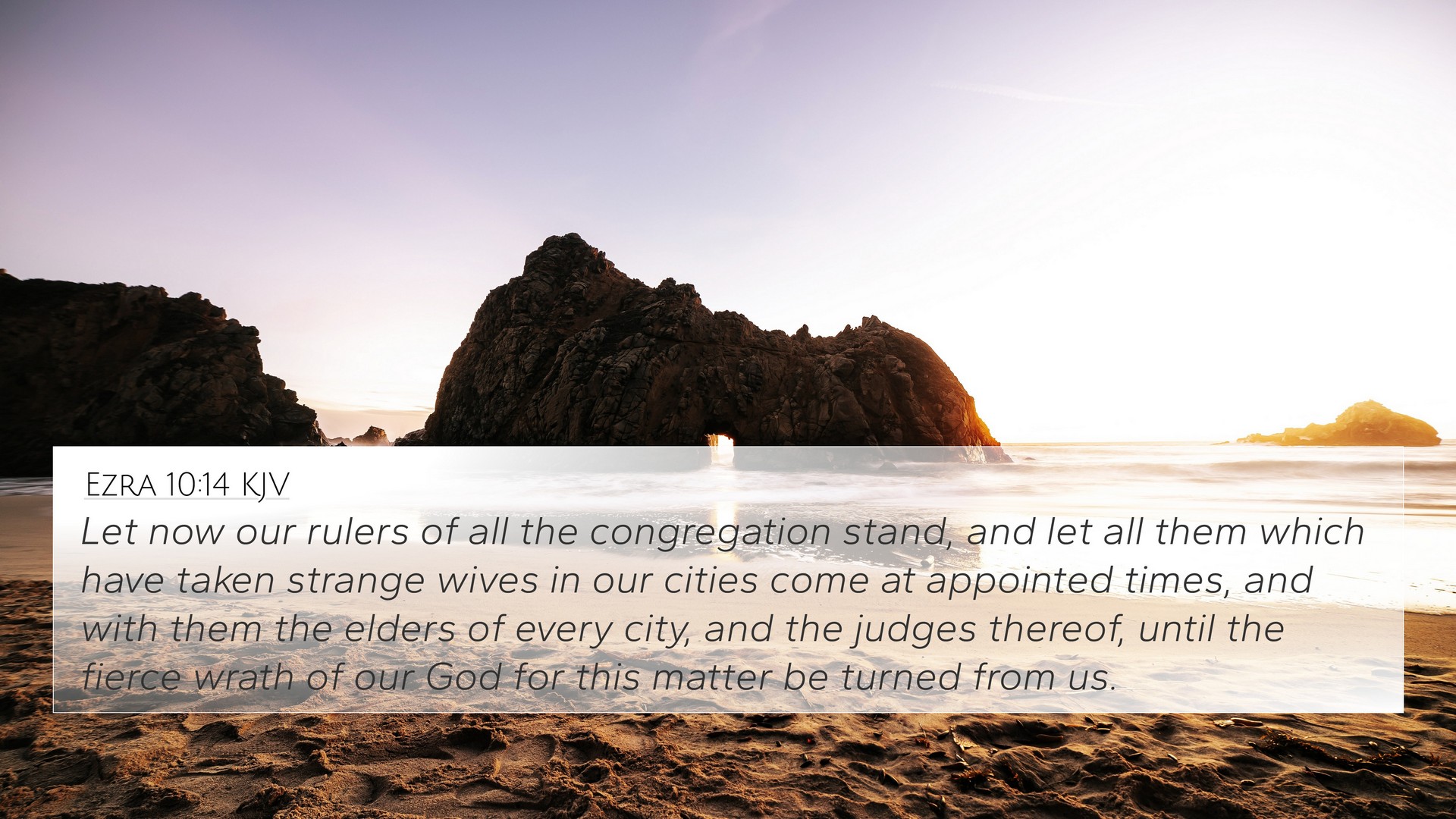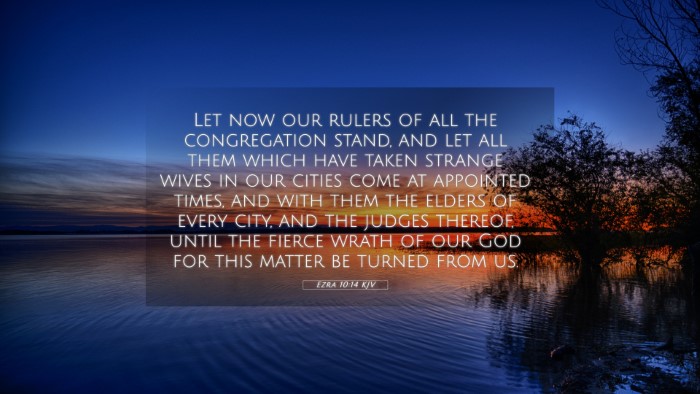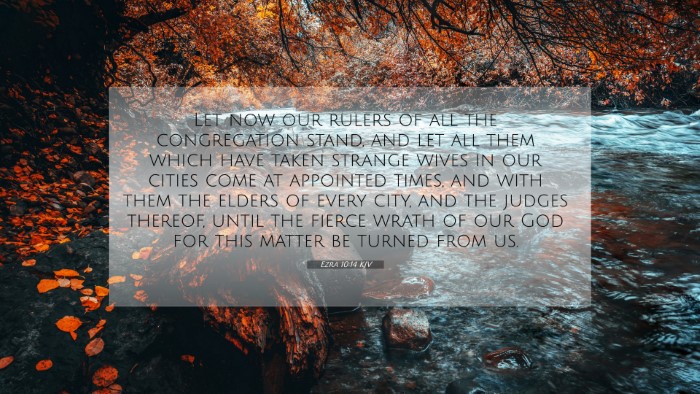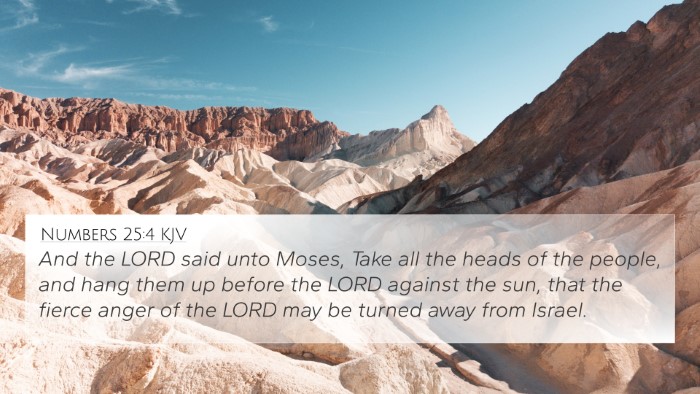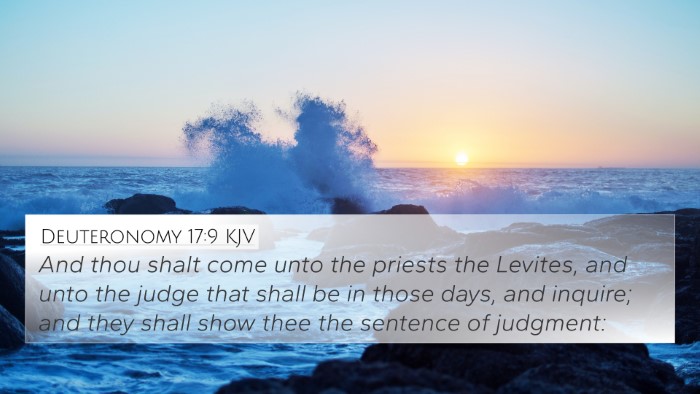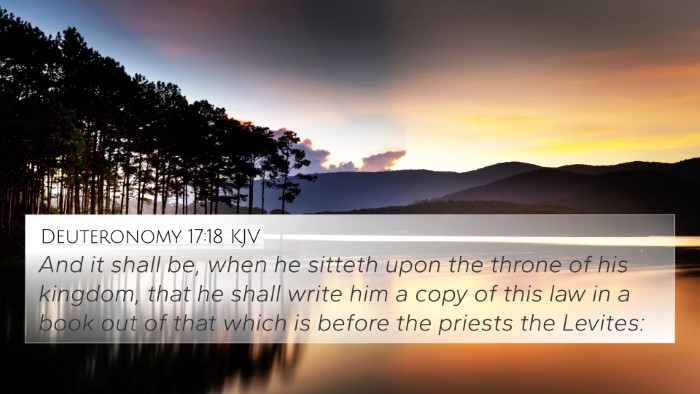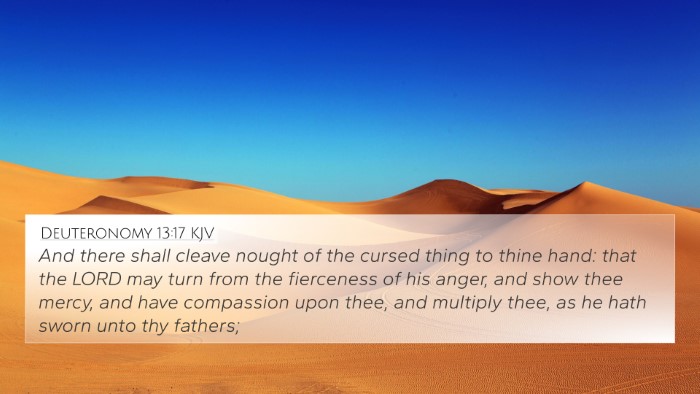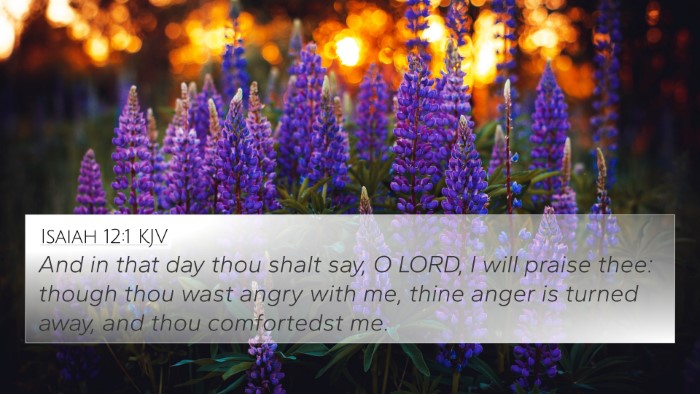Understanding Ezra 10:14
Ezra 10:14 states, "Let now our rulers of all the congregation stand, and let all them which have taken strange wives in our cities come at appointed times, and with them the elders of every city, and the judges thereof, until the fierce wrath of our God for this matter be turned from us." This verse occurs in a context of repentance and restoration after the Babylonian exile, where Ezra leads the people in addressing their intermarriage with foreign nations.
Context of Ezra 10:14
The frequency and severity of intermarriage issues compounded the spiritual decline among the Israelites. In Ezra's time, this act was seen as a breach of covenantal fidelity to God (see Deuteronomy 7:3-4). Thus, the gathering called for by Ezra aims to address the critical spiritual state of the people and calls for a prompt and structured response.
Commentary Insights
-
Matthew Henry's Commentary:
Henry emphasizes the communal aspect of the response. The calling forth of the rulers and elders suggests a collective accountability and a recognition of shared guilt among the congregation. His commentary highlights the urgent need for repentance and the return to righteous living as essential for restoring divine favor.
-
Albert Barnes' Notes:
Barnes interprets this verse as indicating a structured plan to rectify the transgressions that had incurred divine wrath. The appointment of times and leaders symbolizes the serious commitment of the people to correct their behavior and restore their relationship with God.
-
Adam Clarke's Commentary:
Clarke points out the significance of 'strange wives,' representing not only foreign women but the broader idea of turning away from God’s commandments. His analysis underscores the importance of returning to spiritual purity through deliberate action and accountability as a community.
Bible Verse Cross-References
- Deuteronomy 7:3-4 - Prohibition against intermarriage
- Nehemiah 13:23-27 - Nehemiah's similar actions regarding mixed marriages
- Malachi 2:11-12 - God’s disdain for unfaithfulness and intermarriage
- 1 Corinthians 10:12 - Warnings against falling into error
- James 4:4 - Friendship with the world as enmity with God
- 2 Corinthians 6:14 - The call for believers to separate from unbelievers
- Ezra 9:2 - The concern for intermarriage leading to disobedience
Thematic Connections
This verse’s themes reflect broader biblical motifs, such as the necessity of corporate repentance, the dangers of spiritual compromise, and the call for fidelity to God. Ezra acts as a mediator who links the will of God with communal actions and responsibilities.
Tools for Bible Cross-Referencing
Understanding Bible verse cross-references is crucial for deeper study and comprehension. Here are some tools and methods:
- Bible Concordance: An index of words used in the Bible to help locate verses.
- Bible Cross-Reference Guide: These guides connect related verses thematically.
- Cross-Reference Bible Study: This method utilizes connected themes to draw insights from multiple scriptures.
- How to use Bible Cross-References: A methodical approach to exploring biblical interconnections.
- Bible Chain References: A sequence of related verses derived from a central theme.
- Comprehensive Bible Cross-Reference Materials: Texts and books dedicated to providing extensive references.
Conclusion
In summary, Ezra 10:14 serves as a pivotal moment in Israel's history, reflecting on the necessity of communal responsibility and adherence to God's commands. It sets the stage for a broader understanding of the interrelationship between text, community, and divine interaction. The insights drawn from public domain commentaries, combined with the thematic studies and cross-references, provide a nuanced interpretation essential for both personal study and communal teaching.
